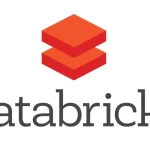Social media algorithms are still failing to counter misleading content
In today’s digital age, social media platforms play a significant role in shaping public discourse and information dissemination. However, the rise of misleading content poses a pressing challenge, as social media algorithms continue to struggle in effectively countering its spread. Despite ongoing efforts, the impact of misleading content on public perception and societal well-being remains a critical concern. In this blog, we delve into the current state of social media algorithms and explore the challenges they face in combatting misleading content.
The Prevalence of Misleading Content: Misleading content has become an unfortunate byproduct of the information age. From false news stories and conspiracy theories to manipulated images and deceptive advertising, the spread of misleading content can have far-reaching consequences. It erodes public trust, fuels polarization, and hampers the ability to make informed decisions. Social media platforms, as primary sources of news and information for many, bear a significant responsibility in addressing this issue.
Algorithmic Challenges: Social media algorithms, designed to curate content and personalize user experiences, face inherent challenges in countering misleading content. These challenges include:
- Scale and Speed: Social media platforms process massive amounts of data in real-time, making it difficult to accurately identify and fact-check misleading content in a timely manner.
- Algorithmic Bias: Algorithms can inadvertently amplify misleading content due to biases in the data they learn from or unintended consequences of optimization goals, potentially reinforcing existing beliefs and echo chambers.
- Content Evaluation: Determining the veracity of content is a complex task, requiring context and nuanced analysis. Algorithms often struggle to accurately discern between credible information and misinformation, particularly in rapidly evolving situations.
- Adaptive Tactics: As platforms employ countermeasures to mitigate misleading content, those spreading misinformation adapt and find new ways to circumvent detection, putting algorithms in a constant catch-up mode.
Addressing the Challenge: Recognizing the urgency of the issue, social media platforms have taken steps to mitigate the impact of misleading content. These include:
- Fact-Checking Partnerships: Platforms collaborate with independent fact-checkers to assess the accuracy of content, flagging potentially misleading information and reducing its reach.
- Algorithm Adjustments: Platforms refine their algorithms to prioritize trustworthy sources and reduce the amplification of misleading content, aiming to provide more balanced and reliable information to users.
- User Feedback: Platforms encourage users to report misleading content, empowering the community to identify and flag problematic information.
- Transparency and Accountability: Platforms have made efforts to increase transparency by providing users with more information about the algorithms’ functioning, content policies, and enforcement actions.
The Road Ahead: While progress has been made, addressing misleading content requires a multifaceted approach involving collaboration between platforms, users, fact-checkers, and regulators. Some potential strategies for improvement include:
- Continued Algorithmic Refinement: Platforms must continuously refine their algorithms to better identify and combat misleading content, while minimizing unintended biases.
- Media Literacy and Education: Enhancing media literacy programs can equip users with critical thinking skills to discern reliable information from misleading content.
- Collaboration and Information Sharing: Platforms should collaborate with researchers, experts, and industry peers to share best practices, lessons learned, and innovative solutions in combating misinformation.
- Regulatory Frameworks: Governments and regulators can play a role in setting guidelines and standards to ensure platforms actively address misleading content without compromising freedom of expression.


































